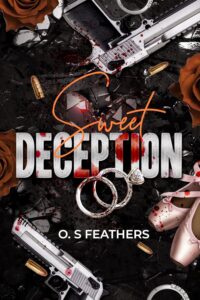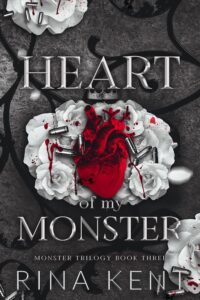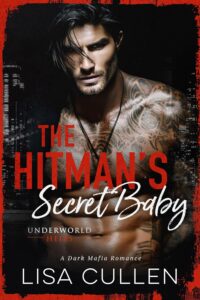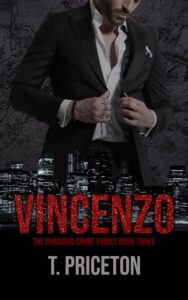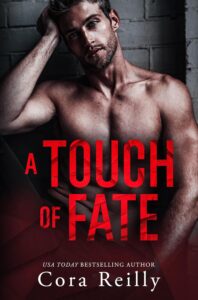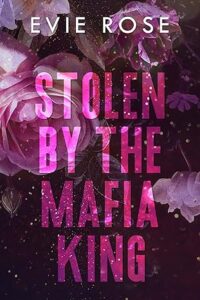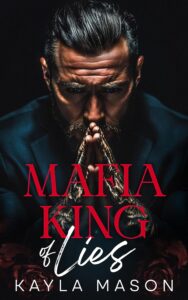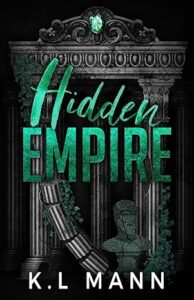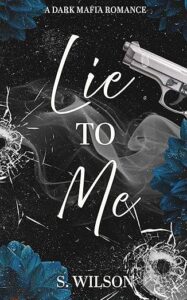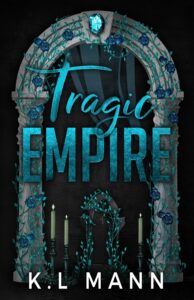Endless ribbons of a pale ocean stretch in front of us, with the sun melting across the surface in long strokes of gold.
I dig my toes deeper into the sand as my son runs ahead, his laughter rising in bursts every time the tide catches his heels.
He is still small enough to think the sea might chase him, and brave enough to taunt it when it turns away.
I watch him dart back and forth like a ribbon in the wind, his curls sticking to his cheeks, his arms flung wide as if he can fly.
No one here knows who I am.
That was the first rule.
The most important one.
My name, like everything else about the girl who had once belonged to the Lombardi family, had vanished the moment the car exploded outside Nuova Speranza.
Aria had died with that fire.
What remained was someone quieter, sharper, someone who had learned how to vanish in plain sight.
But it hadn’t always been like this.
For weeks after the escape, my body moved without direction, held together by adrenaline and the weight of everything I couldn’t afford to grieve.
Yarik left me at the port with a forged passport, a little cash, and a phone that would only work for a week before it burned out.
He said goodbye without a word, as if he’d already mourned me.
From there, I boarded a ferry that took me south, farther than I’d ever traveled on my own.
I gave my new name to every officer, every innkeeper, every suspicious pair of eyes that lingered a little too long. Elena Rinaldi.
Twenty-four. No criminal record. No family. No story to tell.
At first, I stayed in hostels.
Small ones. Cheap. The kind that didn’t ask questions as long as you paid upfront and didn’t bleed on the sheets.
My room was often no more than a mattress, a flickering fan, and a broken window latch that let in sea salt and rain.
I kept my things in a duffel bad that I never fully unpacked.
Slept with my passport under my pillow.
Ate when I could.
Watched my back every time I went out for bread.
But fear, like everything else, loses its edge with time.
After the first month, I found a rhythm.
I learned which neighborhoods were safest, which shopkeepers didn’t stare too hard, which parks had benches I could sit on without drawing attention.
The money Luciana had sent with me—cash, all clean—was enough to last a little over two months.
I was careful. But not stupid.
I knew it would run out.
And when it did, I would need a way to live that didn’t involve going back.
The job came almost by accident.
There was a restaurant tucked into the old district of the coastal town where I’d landed.
Not a grand one.
Nothing with stars or white linens.
It was the kind of place where the chairs didn’t match and the walls were covered in handwritten menus that changed depending on what fish the harbor delivered that morning.
I’d eaten there twice.
Once, when I was too tired to cook.
Once, when I just wanted to sit near people and remember what it felt like to laugh.
The owner was a widow named Paola, sharp-eyed and iron-voiced, with graying curls and hands that moved like she’d never been afraid of work.
She caught me staring at a help wanted sign and asked if I’d ever washed dishes.
I lied and said yes.
She asked for my name.
I gave her the one on the papers.
She nodded once and told me to come back the next morning.
It wasn’t glamorous.
I scrubbed pans until my knuckles bled, swept fish scales from corners, peeled garlic until the scent clung to my fingers for days.
But I earned enough to afford a single-room apartment on the edge of town, just a short walk from the docks.
It had a cracked tile floor and a bathroom the size of a closet, but it was mine.
No one else had a key.
No one knew where I slept at night.
I wore my new name like a second skin.
Slipped into it every morning like a fresh shirt.
I spoke little, smiled less, and worked until my muscles screamed for mercy.
The chef, a stocky man named Manolo with arms like hams and a surprisingly gentle manner, began to trust me with more than dishes.
First prep work. Then sauces. Then the pasta, which he said I had a strange feel for.
I told him my grandmother had taught me.
That part was true, even if the rest was not.
At night, I walked along the sea.
I let the waves fill in the silence where my past used to live.
Sometimes I cried, but never where anyone could see.
That version of me—the one who broke down—was a luxury I no longer had.
Five months in, I’d saved enough to replace my clothes, change my phone, and stash a second set of documents in case I ever needed to disappear again.
The apartment was still small, but I’d added a bookshelf.
A kettle.
A plant that didn’t survive, but made the windowsill feel like a home while it did.
I had friends, if you could call them that. Marie shared espresso and gossip when the kitchen was quiet. Paola offered me leftover bread and asked me to walk her dog when her hip ached.
A girl named Sofia, who worked the front counter, started inviting me to Sunday dinners with her aunt. I was reluctant at first, but the more I went, the easier it became.
And over time, the invitations stopped feeling like tests.
I did not tell them who I was. I did not let myself be known, but I did allow myself little slivers of a normal life.
It was important to be careful, for my sake and for the sake of the baby growing in my belly.
Until the night the fever came, catching me after a double shift.
I’d come home soaked in rain and fish grease, dizzy from the heat of the stove and the ache in my legs.
I remember sitting down to take off my boots and waking up hours later on the bathroom floor, shivering so hard my teeth ached.
The next day, Sofia came knocking. When I didn’t answer, she used the spare key I hadn’t meant to give her.
She called the doctor. She brought soup. She stayed two days, sleeping in a chair and pretending not to notice the nightmares that made me cry out.
She never asked what I was running from.
But she held my hand when the fever broke. After that, something changed.
I wasn’t just surviving anymore.
I was building something and doing it with the purpose of a mother.
I worked as long as I could.
Saved every coin.
Bought a secondhand crib from a neighbor with twins and took sewing jobs on the side.
I lied at the clinic, said I was a widow from Messina and that I had no family left.
They gave me prenatal vitamins and a calendar.
I read every book I could find. I taught myself lullabies I didn’t remember learning.
And when he came, screaming and perfect, with eyes that held the entire ocean in their depths, I knew I’d made the right choice.
Now, five years later, he runs barefoot across this beach with my curls and Enzo’s mouth, laughing at the sea and daring it to chase him.
The sun spills gold across the shoreline, warm and diffuse, casting the sea in the kind of glow that makes it hard to remember what fear feels like.
Gabriel crouches at the edge of the surf, scooping fistfuls of wet sand into a crooked mound that keeps caving in on itself, but he doesn’t mind.
He’s humming something to himself, absorbed in the rhythm of his work, his cheeks flushed and his little hands sticky with grit.
There’s a concentration on his face I know too well.
It’s his father’s face when deep in thought, that same intensity softened by youth and a kind of gentleness I never imagined I would raise.
For a moment, I just watch him, committing every detail to memory, because I know better than to believe that peace is permanent. It never has been, not for people like us.
I shift on the faded blanket spread beneath me, the fabric patterned with blue hibiscus and the salt-stiff corners of a dozen similar afternoons.
The breeze smells of kelp and citrus.
Gulls drift lazily overhead, and the waves curl in long sighs across the sand, but beneath it all, there’s a stillness in me that doesn’t quite settle, a quiet ache lodged too deep to dislodge.
I’ve built a life here, one I never thought I would be strong enough to build alone, and yet the cost of that choice sits beside me every time I look into Gabriel’s eyes.
He glances up now, abandoning his sandcastle, and pads over with bare feet and sunburned knees.
‘Mama,’ he says, sliding into my lap and wrapping his arms around my neck with the fierce confidence of a child who knows I will always hold him.
His voice is soft but certain. ‘All my friends talk about their fathers coming home from work and playing with them. They have their fathers read stories before they sleep.’
He pulls back just enough to look me in the face, searching for answers I’ve never been able to give.
‘Why does my father never come back from work, Mama?’
My breath catches.
There is no way to explain to a five-year-old that his father is a man forged by a kingdom of blood and loyalty, that the love we shared was buried beneath the ruins of a war we could never win, not together.
Gabriel’s world is filled with sand and juice boxes, storybooks and sleepy afternoons under palm trees.
There is no room in it for the truth.
And still, he asks.
Still, he wants to know.
I brush his curls from his forehead, my fingers trembling just slightly, and gather him closer, as if the right answer could be found somewhere between our heartbeats.
‘Your father is…far away,’ I begin carefully, the words tasting like ash even before they leave my tongue. ‘He lives in a world that isn’t safe for children. Not safe for you. And he doesn’t know how to leave it.’
Gabriel frowns, tilting his head, but doesn’t interrupt.
He waits, patient and solemn, and I realize that no matter how much I try to keep him young, some part of him is already growing old along with the absence.
‘He loves you,’ I say, and I hate myself for how easily the lie falls from my lips, not because I don’t believe it but because I know he may never get the chance to feel it. ‘But sometimes love isn’t enough to change the world a person was born into.’
He nods slowly. There are tears gathering in his eyes, though he doesn’t let them fall.
I see the effort it takes, the way he swallows hard and curls his fingers into my shirt like he’s trying to hold the moment still.
And for all my strength, I nearly break.
I want to tell him the truth.
That his father’s name is Enzo Salvatore and that he once looked at me like I was the last piece of light in a world swallowed by shadow.
That we loved in stolen hours, in hallways built for war, in rooms where everything was made of fire and silence.
I want to tell Gabriel that his father whispered my name like a vow the night before I vanished, and that if there were a version of our lives untouched by blood feuds and family honor, Enzo might have been reading to him every night instead of becoming a ghost I carry alone.
But I cannot tell him those things.
I made my choice five years ago.
I chose survival.
I chose him.
When Gabriel was born, I knew hiding would no longer be enough.
I needed stability, not just invisibility.
A government program for migrant mothers helped me get certified as a translator.
Spanish to Italian.
French to Italian.
I had always been good with languages, and it was something I could do without drawing attention.
I built a reputation slowly, one job at a time, working with small clinics and legal aid offices that needed help bridging gaps.
No one ever asked where I was from.
I made sure of that.
I keep my ear to the ground through a single contact in Florence.
A florist with ties to an old mutual friend of Luciana’s.
She tells me what I need to know, no more, no less.
Which families are rising. Who has fallen. Whether the Salvatores are looking for me. Whether Luca’s wrath still festers like an open wound.
The last I heard, the Lombardi name had crumbled under the weight of its silence.
My death, staged as it was, came at the cost of their favor.
No one punishes betrayal like a grieving king who learns his wife’s disappearance was not an accident, but a choice.
I cannot pretend I do not think of Enzo.
There are nights when the ache of missing him presses so sharply against my ribs I have to bite the inside of my cheek just to breathe.
I remember the way he used to watch me across a room, like he was always calculating how to reach me fastest if everything fell apart.
I remember his hands.
The things they did to me.
The things they held back from the rest of the world.
I remember the way he said my name in the dark, not with tenderness, but with something more dangerous.
A reverence sharpened by sin.
And yet, he made his choice.
He stood beside Luca.
He said the family came first.
And I will never forgive him for that.
Because while he was swearing loyalty to a legacy soaked in blood, I was carving a future from ashes.
I was bleeding alone, scared and desperate, trying to give our child a life worth surviving.
Gabriel curls closer into me now, his head resting against my collarbone, and I breathe in the scent of his sun-warmed skin.
I can feel the tears burning, but I refuse to let them fall. I have no room for fragility anymore. Only resolve.
‘I want to meet him someday,’ he says quietly. ‘Even just once.’
My throat tightens, but I kiss his forehead and nod, not trusting myself to speak. Because the truth is, so do I.
‘Let’s go have lunch somewhere special, yes?’ I clear my throat and extend my hand to him. ‘Come on, darling boy.’
Gabriel insists on carrying the bucket of shells, both arms wrapped around its plastic handle as if it contains treasure more precious than anything the world could offer.
His cheeks are flushed from sun and sea, hair still damp at the edges, curling softly against his forehead.
I drape a towel over his shoulders and gather our things, folding the blanket with one hand and slinging the tote over my shoulder.
The path from the beach is steep and shaded with bottlebrush trees, and the scent of crushed saltbush and rosemary clings to our legs as we climb.
By the time we reach the ridge, the breeze carries the warm scent of bread and basil, the kind that tells you the morning market is in full swing.
The square is nestled between old stone buildings that lean like old friends into each other, their shutters painted in fading blues and greens.
Market stalls bloom like patchwork—striped awnings fluttering over crates of peaches, mounds of tomatoes so red they border on decadent, wheels of cheese stacked beside baskets of wild thyme and flowering arugula.
Sunlight cuts across the square in thick golden slants, catching in the glass jars of honey and the curved necks of oil bottles.
Somewhere nearby, a woman is playing a wooden flute, the tune lilting and half-forgotten, threaded with the chatter of locals and the shuffle of sandaled feet.
Gabriel tugs my hand eagerly, pointing toward the olives, then the honeycombs, then the stall where a man is slicing prosciutto so thin it glows.
‘Can we get the sweet kind again?’ he asks, eyes wide. ‘With the little white seeds?’
I smile, already reaching into my coin purse. ‘You mean the figs?’
He nods furiously. ‘Yes. Figs. But only if they’re squishy, not dry.’
We walk slowly through the market, letting the rhythm of the morning settle into our bones.
I greet the vendors I’ve come to know by voice and smell rather than name: an old woman with hands like olive bark who always slips an extra plum into Gabriel’s bag, a young couple who sell herbs from their rooftop garden and ask no questions when I pay in exact change.
I choose a loaf of sourdough with a blistered crust and a soft cow’s cheese wrapped in lemon leaves.
I buy a tomato so ripe it gives under my thumb, its skin velvet-smooth.
And figs, of course. The squishy kind.
We settle on a low stone bench near the fountain, where the pigeons linger and children climb.
Gabriel peels the fig and grins at the stickiness of it, licking the syrup from his fingers and leaning his head against my shoulder while I slice the bread and cheese into a makeshift picnic.
For a few moments, the world feels whole. I let myself pretend that this is all there ever was; sun, figs, my son beside me, and the miracle of a life reclaimed.
But peace, I’ve learned, is not a thing you get to keep. Not when you are born from blood.
It starts as a flicker in the periphery.
A shadow behind movement.
Then, there is the brief, unmistakable shift of posture that sets every muscle in my body on edge.
I freeze, the knife halfway through a second slice, and my gaze slides carefully, naturally, toward the opposite side of the market.
A man. Broad shoulders, gray jacket, and the cut far too clean for this village.
He stands by the wine vendor, browsing bottles he has no interest in, his eyes masked behind dark glasses, but I know that body.
I know the shape of that jaw.
The line of his shoulders.
I have seen him before, with Enzo.
No matter how many times I blink, that part won’t change.
My mind isn’t making him up.
I swallow once, and force my hands to keep moving. Bread. Cheese. Another fig, split open.
I laugh softly at something Gabriel says, the sound forced through clenched teeth.
But inside me, alarms are sounding like war drums.
It has been five years.
I have changed my name.
My hair is longer.
I walk differently.
I speak with a lilt borrowed from the women who raise goats in the hills and wear woven sandals.
But the Salvatore family and their men never forget a face. And I would be a fool to believe I am entirely forgotten.
Gabriel leans into me again, licking cheese from his fingers. ‘Mama,’ he says softly, ‘why are you holding my hand so tight?’
I hadn’t noticed. My grip has gone white-knuckled around his wrist.
I force a smile. ‘Just don’t want you running off, sweetheart. This place is busy.’
The man hasn’t moved.
He is still by the wine stand, but he is not shopping. He is scanning, watching. I need to go.
I reach into the bag and pull out a cloth napkin, wrap the remaining food, and tuck it all away with a calm I do not feel.
My heart is a thunderclap against my ribs.
Not now. Not here.
Not with Gabriel so close I can feel the heat of his breath.
I stand, slow and smooth, and lift the bag to my shoulder.
‘Time to go home, little love.’

